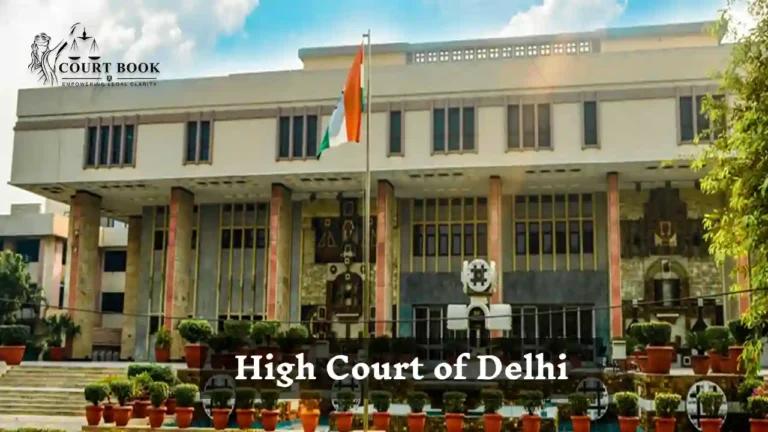The Delhi High Court has affirmed the conviction of a man for sending morphed obscene images and threatening messages to a Class IX student via WhatsApp, declaring that such acts amount to serious cybercrime and sexual harassment under Indian law. The Court dismissed the appeal filed by the accused, Rajesh Gambhir, and upheld the trial court’s judgment and sentence dated 26 March 2024 and 2 December 2024, respectively.
Case Background
The case originated from an FIR lodged on 23 September 2016 at Ashok Vihar Police Station, based on a complaint filed by the mother of the minor victim. The complainant reported that her daughter received obscene images on her WhatsApp, showing the girl's face morphed onto nude images of another person, sent from mobile number 7834891235. The sender threatened to circulate the images on Facebook if the victim did not comply with the demands.
Read Also:-Delhi High Court Grants Four-Week Parole to Convict for Wife’s Childbirth
The photographs were accompanied by threatening messages such as ‘Or kisi ko bola Teri pic miss use karky fb or net pr dalduga’, clearly intending to instill fear in the child, observed the Court.
The investigation traced the mobile number to a mobile shop, "Gambhir Communication," operated by the accused. On approaching the shop, the accused attempted to flee but was apprehended. A Samsung J7 phone containing the same obscene images was recovered along with two other phones and a SIM card. Forensic analysis confirmed the images and messages were sent from the accused’s number to the victim’s WhatsApp account.
During the trial, the prosecution examined 15 witnesses, including the victim and her mother. Both confirmed the sequence of events and identified the morphed images and mobile number used to send them. The Delhi High Court found the testimonies consistent and supported by digital evidence and expert reports from the Forensic Science Laboratory (FSL).
Read Also:-Delhi High Court Gives Six-Week Relief to Petitioner in MCD Demolition Case
“The psychological trauma of such an act on a 14-year-old is immeasurable. The accused exploited technology to commit a faceless yet deeply damaging assault on the child's dignity,” stated Justice Swarana Kanta Sharma.
The Court stressed the growing threat of cyberbullying and the mental trauma it inflicts on children. It remarked that while the crime occurred in the digital space, its emotional impact on the minor was severe and enduring.
The Court also noted that the accused deliberately used multiple devices and SIM cards to avoid detection, demonstrating a calculated attempt to escape legal consequences. However, the digital trail firmly linked the crime to him, and the Court emphasized the importance of forensic tools in cracking such cybercrimes
Read Also:-Delhi HC Denies Bail to Husband in Dowry Suicide Case of Gulnaz @ Julie
The trial court had convicted the appellant under multiple provisions, including Sections 354A(iii), 354D, 509, and 506 of the IPC; Sections 67 and 67B of the Information Technology Act, 2000; and Sections 11(v)/12 and 13/14 of the POCSO Act. He was sentenced to rigorous imprisonment for three years under Section 12 of POCSO, one year under Section 506 IPC, and five years each under Section 14 of POCSO and Section 67B of the IT Act. The sentences were directed to run concurrently.
The law must send a clear message that crimes committed in cyberspace against children are taken with utmost seriousness, concluded the Court while rejecting the appeal.
Title: RAJESH GAMBHIR v. STATE GNCT OF DELHI AND ANR















